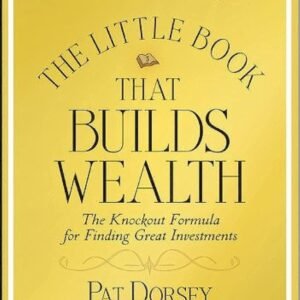Talking about money can be hard so use these titles to help you with those money conversations. Books are divided into sections depending on the age of your children from pre-schooler/early readers to young adults/teens.
This post contains affiliate links. See Disclosures for details.
Pre-School/Earl Readers
-
Save It! (A Moneybunny Book) by Cinder McLeod introduces simple money concepts in which a little bunny learns about the power and satisfaction that come with saving money. Carrots are used as money in this series.
-
The Berenstain Books by Stan and Jan Berenstain: The Berenstain Bears’ Trouble with Money , The Berenstain Bears and the Trouble with Chores , and The Berenstain Bears’ Dollars and Sense . These children’s books uses the popular Berenstain Bears characters to teach kids about money.
-
One Cent, Two Cents, Old Cent, New Cent: All About Money from The Cat in the Hat’s Learning Library. Learn the history of money in this basic book. It’ll help you child appreciate the invention of money.
-
The Four Money Bears by Mac Gardner teaches kids the four basic functions of money. Spender Bear, Saver Bear, Investor Bear, and Giver Bear, and each can do good and bad things with their money.
-
My First Piggy Bank by Catherine Agopcan (that’s me) teaches little ones what a piggy bank is and what it means to save money.
-
My First Investment by Catherine Agopcan follows up on our main character as her piggy bank fills up. She’s wondering with to do with her money and is introduced to the concept of investing.
Elementary/Middle School
-
The Lemonade War by Jacqueline Davies: This is a children’s novel that tells the story of two siblings who start competing lemonade stands, and in the process learn valuable lessons about money, business, and competition.
-
Rock, Brock, and the Savings Shock by Sheila Bair tells the rhyming tale of twin brothers Rock, a spender, and Brock, a saver. The boys are encouraged to save by their grandpa, who gives them a dollar a week to do chores and promises to double their money each week if they haven’t spent it.
-
Finance 101 for Kids: Money Lessons Children Cannot Afford to Miss by Walter Andal explains basic and intermediate concepts of personal finance, economics, and good money management habits in a way that is relatable to kids.
-
How to Turn $100 into $1,000,000: Earn! Invest! Save! by James McKenna, Jeannine Glista, Matt Fontaine. It covers financial goal setting, budgeting, saving, investing, earning money from a job, and starting a business. Great for would-be entrepreneurs.
Teens/Young Adults
-
I Want More Pizza: Real World Money Skills For High School, College, And Beyond by Steve Burkholder uses the pizza model to teach financial topics to teens. This book has been used in high school classrooms. This book covers saving, spending, prioritization, goal setting, compound growth, investing, debt, credit cards, student loans, mental blocks, and taking real world action.
-
It’s the Student, Not the College: The Secrets of Succeeding at Any School―Without Going Broke or Crazy by Kristin White. Written by an educational consultant, this book provides tips on how to avoid unrepayable debt (for both parents and children) and set your child up to grow, excel, and enjoy themself at any school.
-
Get a Financial Life: Personal Finance in Your Twenties and Thirties by Beth Kobliner. This covers such topics as goal setting, handing credit, investing, and even saving for retirement (and why it’s never too early). The author specializes in financial advice for young people and has a “Money As You Grow” series with the Consumer Financial Protection Bureau.
-
I Will Teach You to Be Rich: No Guilt. No Excuses. Just a 6-Week Program That Works by Ramit Sethi. This book covers the usual topics—credit cards, banking, investing, etc.—but with an irreverent emphasis on actually enjoying money.
It’s never too early or too late to start the money conversation with your kids. Money is an important part of our lives and instilling good money habits early on can set children up to be financially independent adults.
14 Best Books for Teach Kids About Money



















Leave a Reply